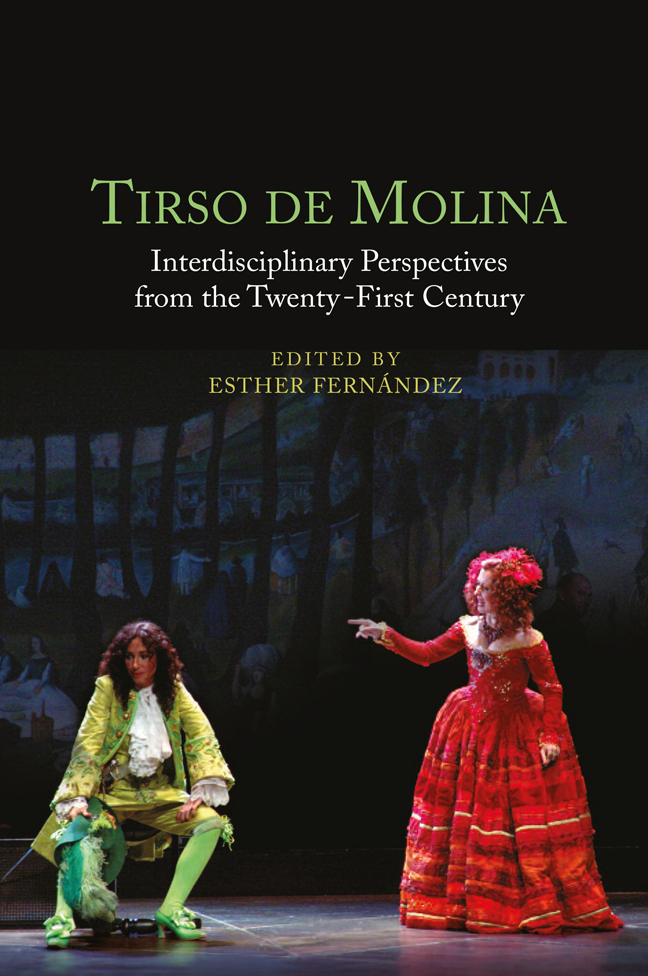19 - Dismantling Myths and Repositioning the Other: Tirso de Molina for the Twenty-First-Century Classroom
Published online by Cambridge University Press: 02 March 2024
Summary
Any syllabus of early modern Spanish theater of the last century is almost guaranteed to include El burlador de Sevilla [The Trickster of Seville and the Stone Guest]. Although recent scholarship has corrected the authorship of this play to that of Andrés de Claramonte, Don Juan is inextricably linked to Tirso de Molina. This problematic character has gained mythological status in Spain and around the world, inspiring rewritings and adaptations for over 400 years. In many ways, this figure has overshadowed and erased many other characters and plays by Tirso, which are much more interesting and diverse. This polemic requires us to examine the relatability of the texts we present in the twenty-first-century classroom. In this chapter, we are proposing a reading list of other Tirso plays, with an eye to taking a critical literacy approach to the comedia (Spanish comedic plays) within a context that students can better understand, connect with their own experiences, think critically, and apply the acquired knowledge in a transformative way. This process involves disassociating Tirso’s life and work from the aforementioned canonical play and introducing other works that are accessible to students and can be taught following approaches that promote a more profound analysis and study of our classics, as well as students’ engagement and critical literacy. We have found that once students are already thinking and engaging with texts in a critical way, they are more inclined to actively participate in projects and strategies that line up with High Impact Educational Practices (HIPS), as we will discuss below.
Our intention in introducing these new works to the classroom is to demonstrate that there was a diversity of viewpoints in the Golden Age and particularly in Tirso as a progressive thinker for his time. A broader look at his oeuvre shows us that, even as a member of the clergy, Tirso reflected on authority, social norms, gender disparity, and class structure. These works allow students a critical framework through which they can better understand the world, then and now. When students engage actively with the text, it helps them to be more conscientious. This can be done by taking the text apart and relating it to the readers’ lived experiences. It helps students to question, think critically, and have open discussions about important social issues, simply by starting with questions such as: Why are certain discourses included or excluded from these texts?
- Type
- Chapter
- Information
- Tirso de MolinaInterdisciplinary Perspectives from the Twenty-First Century, pp. 285 - 299Publisher: Boydell & BrewerPrint publication year: 2023



